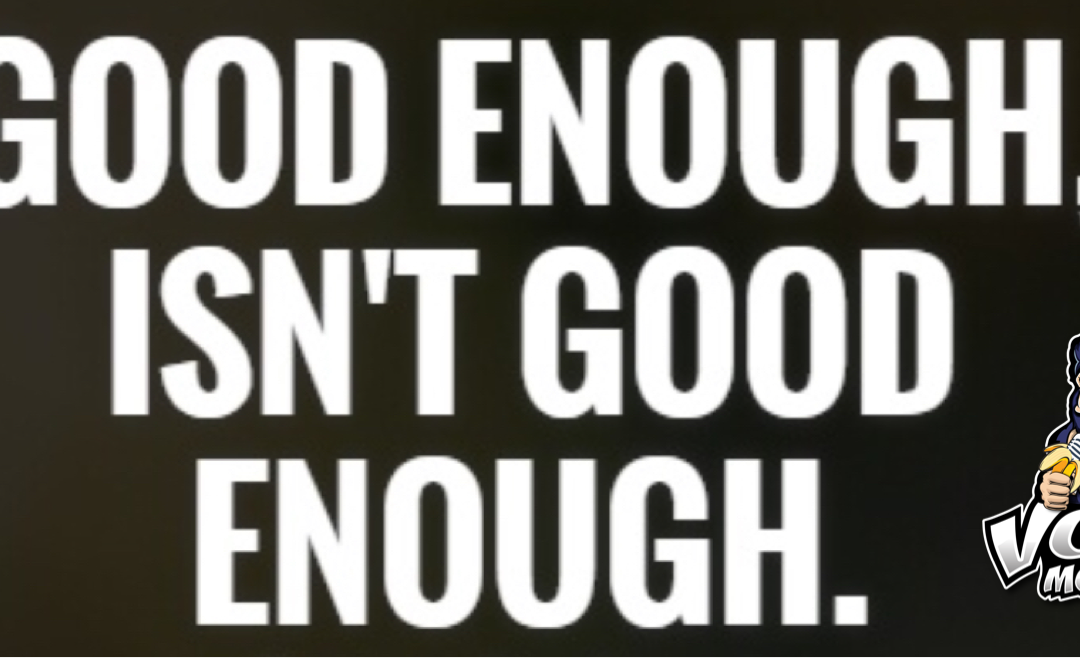I was talking to a friend of mine yesterday who does casting for voiceover, and he was lamenting about the volume of not so great voice talent out there. People who submit auditions that they have deemed “Good enough”. That mentality seems to be very pervasive not only in voiceover but in society in general.
I see it in my kids. They would rather move on with a mostly right answer than actually be correct. “It’s good enough, Dad, let it go”.
I’ve been on the casting side of voice projects and have seen the types of auditions that come in. I’m always shocked at how bad some of these are that were “good enough” to send in. Horrible audio quality, not labeling the file according to instructions, reads that have nothing at all to do with the specs, clicks, pops, etc. left in. Some of the reads sounded like they were in a bathroom or a staircase recorded on their phone. Maybe they were.
There is so much that you can’t control in this business. Projects go through many changes during its life cycle. But there are many things you can control that are easy to do and will help you stand out from the crowd of wannabes and be better than “Good Enough”.
1. Follow instructions. Read the instructions carefully, make notes, pay attention. If they say slate, slate, if they say don’t slate, don’t slate. (Seems simple enough you’d think, but people can’t seem to grasp that concept) Label the file correctly. Do they want a wav or mp3?
2. Work on your audio quality. There are zillions of resources out here to help you build your own home studio and acoustically treat it. Reach out to people like James Younger at Atlanta Voiceover Studio and ask him for help. I had Luke Truan come check out my space to make sure it was up to snuff. Even sending in an audio sample to George Whittam is never a waste of time. They can all help you make your audio sound where it needs to be. You can get a good mic, but the space is more important than the mic. A $2000 U87 is going to sound like shit in a bathroom or in a big empty room. It doesn’t cost a lot to treat your space. Use the University of YouTube to get started in building your space out. I have a PVC framed booth with acoustic blankets from Producers Choice in my walk-in closet and it sounds amazing.
3. Find a coach to help you with the reads themselves. Take online classes, zoom workout groups, practice practice practice. Putting in the reps behind the mic will help you be great, not just good enough. Take audio editing classes. They help! Steve Henderson and Domingo Castillo are two coaches I can recommend.
Good enough won’t get you where you want to go. Working hard and putting in the effort go a long way to helping you succeed.


All good and worthy tips, Mike – thanks! it never ceases to amaze me the kind of labeling requirements that casting directors insist on sometimes. Invariably they are incredibly complicated and lengthy…and it borders on the insane. BUT – do I want to get listened to? Yes. Do I want to be in compliance? Yes. Will being in compliance put me in the running to be cast? Yes. So even if it’s somewhat taxing, I do it. Even if I don’t WANT to slate, I do it. Even if it takes longer to render an mp3 than it does a native WAV, I do it. That’s what the client wants. So I do it. Good enough is not good enough indeed. There are no points for second place.